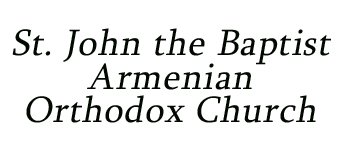Latest News & Articles
All the news that are relevant for our community
All the news that are relevant for our community
Palm Sunday is the celebratory bridge between two periods of profound reflection on the Armenian Church calendar, Lent and Holy Week. On Palm Sunday, the sanctuary curtain was opened, the gospel reading commemorated Jesus’ triumphant entry into Jerusalem, Holy Communion was offered for the first time in 40 days and the Opening of the Doors ceremony was performed.
On Sunday, June 14th, the Armenian Church remembers Elijah, one of the greatest prophets of the Old Testament recorded in 1 and 2 Kings. He appeared along with Moses at the Transfiguration as the prophet of life and the new covenant. The Armenian Church (like all the Eastern churches) holds Elijah in the highest esteem.
The recent escalation of conflict between Israel and Iran is making headlines around the world, and many are asking, “Is this the beginning of something bigger? Is this the end?” It’s natural to feel shaken by the images of devastation and loss. War challenges our faith. It raises deep questions about where God is in the midst of such chaos.
But Scripture reminds us that these events are not new. From the beginning of time, humanity has known the pain of war and the longing for peace. When two armies meet, regardless of the cause, every soldier shares the same hope—to return home alive. In that moment, all differences vanish, and a shared desire for life and peace emerges.
Raoul Aslan was one of the most popular Austrian actors in the 1920-1950 period.
He was born Raoul Aslanian on October 16, 1886, in Salonica (Thessaloniki), then part of the Ottoman Empire (now in Greece). His father Charles Aslanian was a tobacco salesman from Edirne (Adrianopolis) of Armenian origin, and his mother came from an Italian family that had moved to Egypt. His younger brother was the actor Didier Aslan (1894-1978).
Aslan’s mother tongue was French, as was customary among the upper middle classes of the Ottoman Empire at the time. He was brought up by a Viennese governess and moved to Vienna with his mother in 1896 to attend school.
